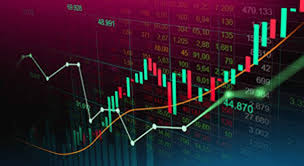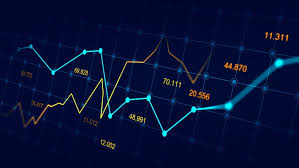
Comprehensive Courses for Forex Trading: Your Path to Financial Freedom
Forex trading, or foreign exchange trading, is the process of exchanging one currency for another in an effort to make a profit. It’s one of the largest and most liquid financial markets in the world, attracting millions of traders. However, as lucrative as it can be, navigating the world of forex can be quite complex, which is why courses for forex trading Philippines Brokers offer educational resources to help traders enhance their understanding and skills in this field. This article explores the importance of taking courses for forex trading, the types available, what to expect, and how they can set you on the path to success.
The Importance of Forex Trading Courses
Forex trading is not merely about buying and selling currencies; it requires a solid understanding of various factors, such as market analysis, trading strategies, risk management, and psychological resilience. Courses designed for forex trading provide prospective and active traders the essential knowledge needed to make informed decisions. Here are some key reasons why engaging in these courses is vital:
- Structured Learning: Courses provide a structured approach to learning the complex concepts of forex trading, enabling you to build a strong foundation of knowledge.
- Expert Guidance: Many courses are taught by experienced traders who share their insights and strategies that have proven effective in real trading scenarios.
- Risk Management Skills: Learning about managing risk effectively is crucial for any trader. A good course will teach you how to protect your capital and minimize losses.
- Networking Opportunities: Courses often provide opportunities to connect with other traders and industry professionals, fostering a community of learning and sharing.
- Confidence Boost: Understanding the market dynamics, strategies, and risk management helps build confidence, essential for making trading decisions.
Types of Forex Trading Courses
There are several types of forex trading courses available, catering to different learning preferences and skill levels. Here’s a breakdown of the most common formats:
1. Online Courses
Online courses are increasingly popular due to their flexibility. They allow learners to study at their own pace, often featuring video lectures, quizzes, and downloadable resources. Platforms such as Udemy and Coursera offer various forex trading courses.
2. Live Webinars
Live webinars provide real-time interaction with instructors and fellow traders. Participants can ask questions, engage in discussions, and watch live trading demonstrations, enhancing the learning experience.
3. In-Person Workshops
Some traders prefer in-person workshops, which can provide a hands-on experience. These workshops often take place in major financial hubs and offer networking opportunities alongside practical training.
4. Mentorship Programs
For more personalized guidance, mentorship programs pair students with experienced traders. This arrangement allows for tailored advice and one-on-one support, ideal for traders looking to take their skills to the next level.
What to Expect from a Forex Trading Course
While course offerings can vary widely, certain core elements are typically included in a comprehensive forex trading course:

1. Fundamentals of Forex Trading
Most courses start by introducing the basics of forex trading, including how the forex market operates, currency pairs, and trading terminology.
2. Technical Analysis
Understanding technical analysis is crucial for traders. Courses often cover chart patterns, indicators, and how to interpret market data to make informed trading decisions.
3. Fundamental Analysis
In addition to technical strategies, traders must understand fundamental analysis, which involves studying economic indicators, news events, and geopolitical factors that influence currency prices.
4. Trading Strategies
Courses typically present various trading strategies, from day trading and scalping to long-term investing. Students learn which strategies align with their trading style and risk tolerance.
5. Psychological Aspects of Trading
Successful trading requires mental fortitude. Many courses include modules on trading psychology, helping participants develop emotional discipline and resilience.
Choosing the Right Forex Trading Course
With numerous options available, selecting the right forex trading course can be daunting. Here are some factors to consider:
- Instructor Credentials: Research the background of the course instructor. Look for experienced traders or industry professionals with a proven track record.
- Course Content: Ensure the course covers essential topics that interest you and aligns with your trading goals.
- Reviews and Testimonials: Check reviews and testimonials from former students to gauge the effectiveness of the course.
- Pricing: Consider your budget. While some courses are free, others can be quite expensive. Assess the value offered for the price.
- Support and Resources: Look for courses that offer ongoing support, such as forums, social media groups, or access to additional resources after completion.
Maximizing Your Learning Experience
Enrolling in a forex trading course is just the first step; actively engaging with the material is crucial. Here are some tips to maximize your learning experience:
- Practice Regularly: Apply what you learn through a demo trading account to practice without risking real money.
- Engage with Peers: Join discussion groups or forums to share experiences and insights with other learners.
- Ask Questions: Don’t hesitate to reach out to instructors for clarification or further explanation of complex topics.
- Stay Informed: Keep up to date with financial news and trends to connect your learning with real-world events.
- Keep a Trading Journal: Document your trading decisions, strategies employed, and results to reflect on your progress.
Conclusion
Taking courses for forex trading can significantly enhance your understanding and skills in the forex market, paving the way for potential financial success. By investing time in structured education and leveraging the resources available, you can build a solid foundation and confidently navigate the complexities of forex trading. Whether you’re just starting out or looking to refine your trading strategies, the right course can make a world of difference in your trading journey.
